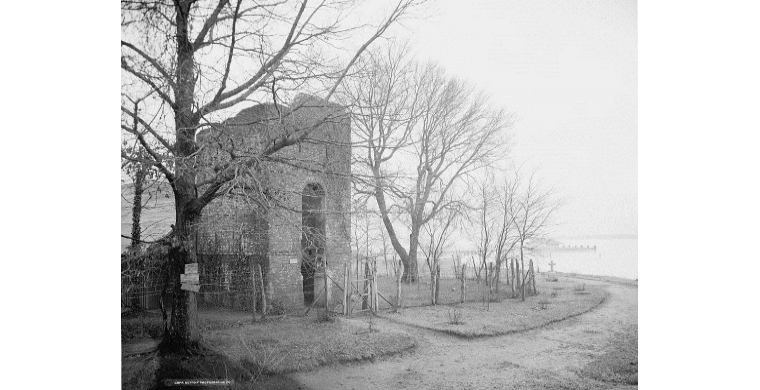BEAUTIFUL ANGLICAN MISTS
By Mark Tooley
JUICY ECUMENISM
September 6, 2023
It's been half mockingly but half seriously remarked that the last surviving U.S. Episcopalian is likely now among us. In the 1960s The Episcopal Church's membership peaked at 3.6 million. It's now down to a mostly ageing 1.6 million, declining fast. Like the Unitarian Church, it'll likely endure as an institution almost indefinitely thanks to considerable financial assets, even without many people. But its demise, with other Mainline Protestant denominations, has been dramatic. Although never huge in numbers, the Episcopal Church across centuries served as America's religious finishing school, educating our leaders, and providing liturgies for our national life.
The Episcopal Church is part of the global Anglican Communion, a spiritual fraternity of many national churches that descend from the Church of England, which itself is fast shrinking. A recent poll of Church of England clergy found most saying Britain is no longer a Christian nation. While their church remains the official state church, fewer than half of the British now identify as Christian. The Church of England's average worship number on a typical Sunday is only about half a million. Its pageantry shines during British public rites, such as funerals, weddings, and coronations. But its direct impact on most British people is sadly minimal.
Anglicanism is vibrant in Africa, where most of Anglicanism's 70-80 million adherents now live, especially in Nigeria. But everywhere in the white majority Anglosphere, Anglicanism is in steep decline, from North America and Britain to Australia and New Zealand. This decline, absent direct divine intervention, is likely irreversible in majority European societies. These majority white Anglican denominations have followed the sad trajectory of other theologically liberalized Protestant denominations. Newer and more conservative Anglican denominations are sometimes growing but are much smaller. Even if they were to grow quickly, it would take generations for them to reach what denominations like the Episcopal Church once had. The Anglican Church in North America has under 130,000, or less than 10 percent of the Episcopal Church's current U.S. membership.
There's no point in waxing too nostalgic about the once significant role of Anglicanism in American public life. It will not be restored, but we can be grateful for its magnificent legacy. Its accomplishments have much to teach us today. Much of early British America was literally founded as an Anglican society. Recently I was vividly reminded of this history by visiting the two earliest English colonies in America.
The Lost Colony at Roanoke Island in coastal North Carolina was the first attempt in 1585. There evidently was an Anglican cleric, who baptized the first English child born in America, Virginia Dare. The native friend to the English colony, Manteo, was baptized shortly before Virginia and was likely the first native convert in America to Anglicanism. He and Virginia Dare are celebrated by the Episcopal Diocese of East Carolina. Both Manteo and Virginia Dare disappeared with the colony into the mists of history.
Unlike the Lost Colony, the 1607 settlement at Jamestown endured as Britain's first surviving American colony. It too included from the start an Anglican cleric, and the original thatched and mud Anglican church occupied the center of the fortification. Church attendance was mandatory. Eventually a more permanent brick church was constructed, whose front tower is the only remaining above ground structure from Jamestown. A new memorial church was added onto the old tower on the 300th anniversary in 1907. Early Jamestown notables still remain buried beneath. America's first elected legislative assembly convened in the church in 1619, representing embryonic democratic America. Pocahontas, the native chief's daughter who helped save Jamestown during famine, was likely baptized here. The attempted native massacre of the Virginia Colony in 1624, which killed 20 percent of the colonists, would have been worse absent the warning from a native converted Anglican boy recalled as Chanco. The Episcopal Diocese of Southern Virginia has a retreat center named for him.
The Church of England was the established church for the Virginia Colony until post-revolutionary Virginia disestablished it at the urging of Thomas Jefferson and James Madison, themselves both lifelong Anglicans who favored full religious liberty. Nearly all of the southern Founding Fathers like George Washington were Anglicans, among others, like Alexander Hamilton. It's impossible to imagine America without its Anglican roots, which fed the seedlings of liberty, public order, and social tolerance.
After disestablishment in states like Virginia, Anglicanism became the church of the wealthy and upper middle class in the United States, producing presidents, senators, supreme court justices, and countless other leaders. It was numerically overtaken exponentially by the revivalist churches emerging from the Second Great Awakening. But what it lacked in sheer numbers it more than compensated for in cultural influence.
Some Episcopalians still enact the assumptions and rites of past social prestige. But the Anglican movement in America in all its branches has become a niche culture for persons who appreciate its historic rites and beauty of worship. Evangelical nondenominational Christianity, largely Baptist in ethos, has become America's default Protestant religion. This is not good or bad news. Christianity, especially Protestantism, is never static. Its churn across the decades and centuries never ends.
In another half century or so, some new form of Christian practice might become paramount in America. Perhaps the last living U.S. Episcopalians can greet that new church movement's ascendancy, grateful for the past but also hopeful about the future. God always presides over His churches.
END














